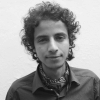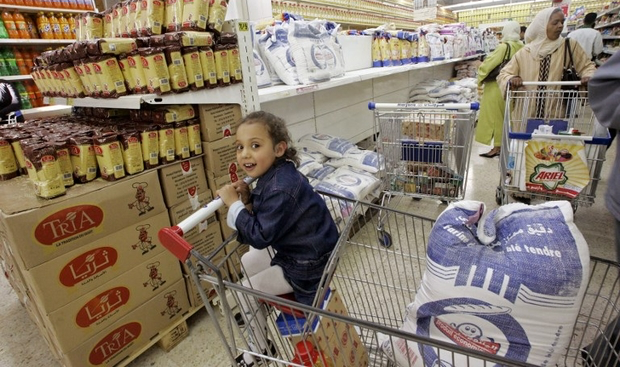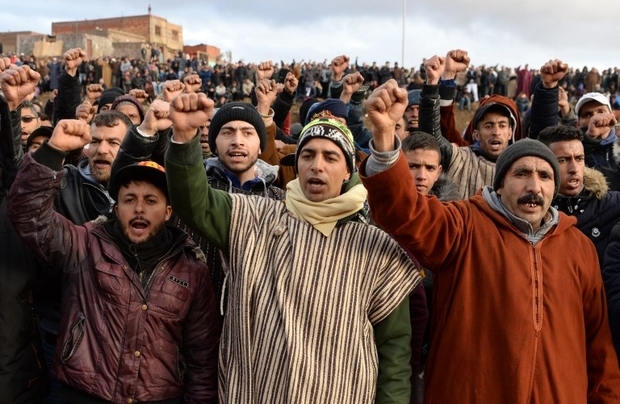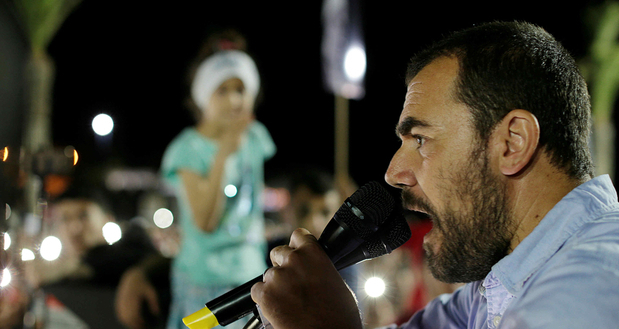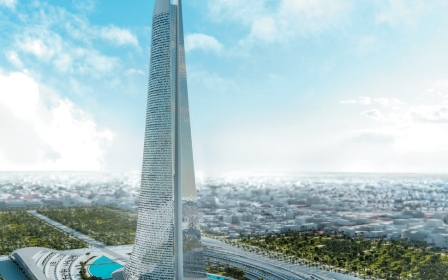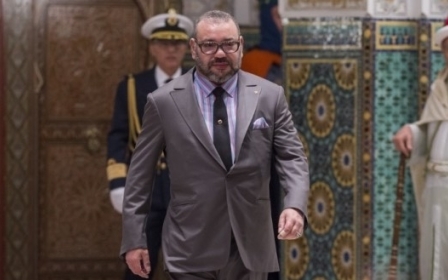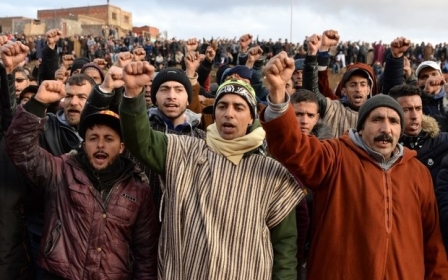Social protest in Morocco: Does Mohammed VI have a plan?
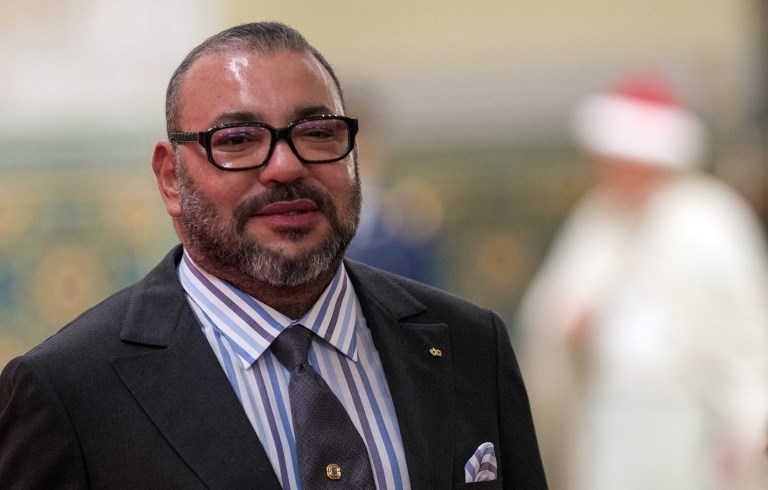
For several weeks now, a growing boycott movement has been rallying Moroccans against the companies who are charging high prices for some of their products: Centrale laitiere (dairy products), Sidi Ali (mineral water), owned by Miriem Bensalah Chaqroun, former president of the Moroccan employers' association, as well as Afriquia (fuel stations), which belongs to Aziz Akhannouch, a Moroccan billionaire close to the king, who is also president of the Rassemblement national des indépendants (RNI), a political party that controls key government departments.
State vs society
The campaign organisers say the boycott was justified by the high selling prices of milk, mineral water and fuel. Soon the campaign turned into a social movement against the rising costs of living. Online protesters have taken to Twitter and Facebook, creating pages to raise awareness of the "exorbitant" prices of the three companies.
The Moroccan government, as part of a lukewarm response, first downplayed the impact of the boycott, then vilified the movement, before eventually resigning itself to taking it seriously, which helped increase the boycott's impact and transform it into a duel of society against the state.
The narrative embraced by boycott organisers also helped define its goals: lower product prices, improve living standards, and denounce inequality and the growing social divide.
The boycott has become somewhat deeply politicised, pitting not only three private companies against their consumers, but also a state against its citizens
As the movement gained ground, the campaigners' expectations were growing as well. The responses of the three companies, which multiplied advertising, promotions and press releases, failed to slow down the boycott movement.
One reason for failure is that the boycott campaign has become -somewhat- deeply politicised, pitting not only three private companies against their consumers, but also a state against its citizens. The causes of this shift can be found both in the discourse mobilised by some of the targeted companies - for example, Centrale laitiere's manager went so far as to say that "boycotting these products is a treason to the country" - and in the government's intervention, which defended the three companies.
Decision-making limbo
For its part, the government reacted to this protest - as it did to previous ones - by setting up a commission to examine the high costs of living, thus diverting attention away from the real issues.
The mushrooming of commissions is a constant feature of Moroccan political life. The pattern of setting up commissions to examine urgent issues without having to achieve results has increased since Saadeddine el-Othmani was appointed prime minister in 2017. It is part of a modality of the exercise of power, which is that of "waiting as a mode of governance", to use the expression of the Tunisian political scientist Hamza Meddeb.
This method involves, as Meddeb notes, "the implementation, sometimes mushrooming, of mechanisms, which in the end do not pave the way to arbitrations, to real choices, even less to new horizons or new visions of development, while using the rhetoric of change and transformation".
"They are compensatory actions, mechanisms of delay, emergency measures, the endless renewal of temporary mechanisms", which thus contribute to relegating "social demands to decision-making limbo".
While in Tunisia, this mode of action is above all symptomatic of the disjunction between the urgency of the social situation and political priorities, in the Moroccan case, it indicates the government's inability to articulate substantive responses to social demands, because the real power lies within the king's hands. The government, therefore, prefers to delay in the hope that dissatisfactions will wane eventually.
Inertia of the king
Will Mohammed VI react to this boycott campaign? At least that's what Moroccans are hoping for. It is possible that the king may ignore an issue that, in theory, falls within the government's area of action. But the government is in reality does not have the authority he enjoys to address those demands.
If he would interact with the demands of the street, what answers would mobilise the king to overcome the protests? If it is a matter of waiting for the Throne Celebration [on 30 July], he tells us that "what makes you happy makes me happy, and what you dislike displeases me, it will not be enough", according to a comment on an unofficial Facebook page that regularly publishes Mohammed VI's news.
Two problematic aspects of the monarch's political behaviour are highlighted. The first is the temporary nature of his responses. By intervening months later, under a calendar of speeches delivered on set dates, the king makes double use of political time, as a resource - a waiting game hoping that the protest will fade - and as the prerogative of a predominance that he must constantly reaffirm; it is, in short, to impose monarchical time as a reference time, and to attest to its primacy over social time.
The result of such an approach is less responsiveness to the demands of his citizens. The late interventions of Mohammed VI also feed criticism of the indifference of a king who is far from his people, insensitive to the protests and has little understanding about the urgent needs of his society.
But these answers no longer convince Moroccans, partly because he responds to protests by launching long-term projects, which often remain unfinished and incomplete because of a lack of monitoring of their implementation. Quite the opposite of a quick response that could calm the protest. On the other hand, this approach suffers from the contradictions and inconsistencies of Mohammed VI's repressive management of social movements: he accepts the demands of social movements while imprisoning demonstrators. What logic is there in that?
Hirak continuity
Whatever the calculations that motivated the repression of the Rif Hirak (social movement) and the protests in Jerada, they proved inconsistent: these social movements did not end with the arrest of their leaders. They have entered the latency phase and are being revived through the boycott. Their networks remained largely unscathed. So the grievances, which have created them in the first place, continued to persist.
The Hirak networks are now fully committed to the success of the boycott campaign: pro-Hirak Facebook pages are mobilising in this direction, with a sometimes radical discourse whose audience - thousands of shares for certain publications - and the degree of support it meets must persuade the king of the urgency of the social situation.
What links the boycott to the previous protests is not limited to a "family resemblance" between the demands and the grievances, including a mistrust of the political scene that shapes the very identity of both protests. The succession of these protests is to be understood as a sequence.
The boycott in a way ensures the continuity of previous mobilisations. By their duration and scale, the Rif and Jerada social movements have exposed the flaws in Morocco's political, economic and social model. The boycott reiterates part of the demands of the Hiraks with a more all-encompassing rhetoric, which reformulates the demands by putting forward common denominators likely to elicit an adhesion of all segments of society.
In short, the boycott and the Rif and Jerada protests ensure a regeneration of mobilisation. They have created a social dynamic to which the Moroccan state has so far failed to respond.
Release of political prisoners
Another proof of the state's failure is being played out on fixed dates before the Casablanca court. By opting for repression, did the palace believe that this would be enough to extinguish the protest? It has, truth be told, only contributed to mute it, promoting its underground development.
As the trial of the Hirak's detainees draws to a close, the hopes of the movement's activists are dwindling as the hearings follow one another, with regularity suggesting an imminent outcome. Given the charges brought against them, the sentences that could be pronounced against them are likely to be severe.
What way out of this crisis after a year of a grotesque trial? If this trial goes through, no one will win.
The Moroccan state, unpopular - always punishing collective action on the basis of disproportionate and outrageous charges. The judiciary, not very independent - even if it had not received instructions, the judicial system would be overzealous.
The police, repressive and unpunished: arbitrary arrests, ill-treatment reported by detainees - everything has been swept under the carpet. Basically, carried to the end, this trial would show that nothing changes and that nothing is likely to change in Morocco.
There is only one honourable way out: the release of political prisoners.
At a time when Moroccans no longer hesitate to express their frustration through various forms of collective action, and when Mohammed VI himself seems to have reached a certain degree of unpopularity, pardoning the detainees of the Hirak would help to defuse the rising popular anger, and lighten the heavy atmosphere that reigns in Morocco. This would be a token of confidence and a starting point for a new dynamic.
- Reda Zaireg is a Moroccan freelance journalist. He has worked for the Moroccan magazine TelQuel, the online newspaper Medias24.com, and the Huffington Post Maroc.
The views expressed in this article are the author’s own and do not necessarily reflect the editorial policy of Middle East Eye.
Photo: Mohammed VI, the king of Morocco, often tries to frame his response to protests as part of a reform agenda that has not been subjected to popular pressure (AFP)
New MEE newsletter: Jerusalem Dispatch
Sign up to get the latest insights and analysis on Israel-Palestine, alongside Turkey Unpacked and other MEE newsletters
Middle East Eye delivers independent and unrivalled coverage and analysis of the Middle East, North Africa and beyond. To learn more about republishing this content and the associated fees, please fill out this form. More about MEE can be found here.


